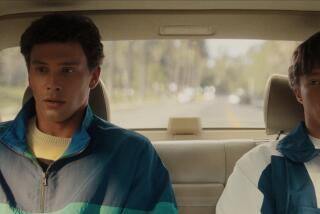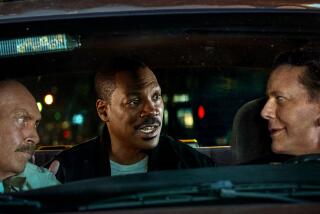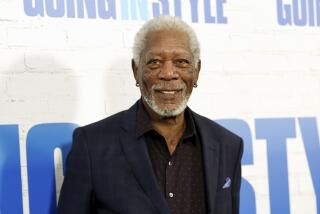With ‘People v. O.J. Simpson,’ Ryan Murphy’s track record on race goes on trial
“The People v. O.J. Simpson,” FX’s ambitious miniseries that goes behind the scenes of the infamous O.J. Simpson murder trial, is re-examining the case through the prism of current volatile issues, including race and class.
The primary producer steering the project premiering in February is Ryan Murphy, the guiding light behind several popular series, including “American Horror Story,” “Glee” and “Nip/Tuck.”
Although Murphy has been applauded for his creativity, several critics have criticized what they see as a lack of sensitivity when it comes to race in many of his shows. Although he has been praised in the past for diverse casting on “Glee,” several TV writers has called his track record on diversity spotty and uneven.
SIGN UP for the free Classic Hollywood newsletter >>
Murphy’s shows have primarily placed people of color on the sidelines or in supporting roles. He’s been called out on the allegation that most of the female black characters on “American Horror Story,” “The New Normal” and Fox’s “Scream Queens” are variations of the “sassy black girl” stereotype. And his non-white male characters are rare.
He also came under fire from critics who maintained that his Fox horror-comedy “Scream Queens,” about a series of murders at an elite sorority run by rich and entitled mean girl Chanel (Emma Roberts), was racially offensive.
In one opening scene, Chanel forces the maid of the sorority house, whom she calls White Mammy, to recite the “I don’t know nothin’ ‘bout birthin’ no babies” line from “Gone With the Wind.”
Pointing out that “Scream Queens” is a comedy, Murphy said in interviews that the dialogue was meant to illustrate Chanel’s racist, distasteful nature.
When asked at the Television Critics Assn. press tour about whether he was adequately equipped to examine the sensitive racial aspects of the Simpson project, Murphy replied that the miniseries tackles race “and is incredibly responsible about it.”
He added that he found the criticism about “Scream Queens” to be “valid and interesting at the same time.” He maintained that he and his fellow producers based the material on information they were reading about the behavior of privileged young white students in the sorority-fraternity system.
He pointed out that Chanel and others in the sorority were charged with crimes, found criminally insane and sentenced to an insane asylum, calling them “broken.”
And he took issue with the assertion that Angela Bassett’s character in the “American Horror Story” would fit into the “sassy black female” stereotype.
“But I think it’s an interesting dialogue to have, and I think we can always do better,” Murphy said. “I was very aware of that when we were working on O.J., and I really, really tried to make sure that, at least from my directorial position on working on the scripts, that we did show all sides, and that we did try and be balanced.”
More to Read
The complete guide to home viewing
Get Screen Gab for everything about the TV shows and streaming movies everyone’s talking about.
You may occasionally receive promotional content from the Los Angeles Times.







